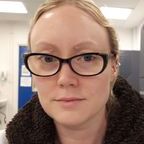Immunology
Transplant Assessment and Relative Opportunity Tool (TAROT) for Renal Transplantation: Improving the chance of transplant for immunologically complex patients
Immunology
Transplant Assessment and Relative Opportunity Tool (TAROT) for Renal Transplantation: Improving the chance of transplant for immunologically complex patients
9am – 9.30am BST, 26 September 2023 ‐ 30 mins
Immunology
Learning outcomes
This presentation will:
- Demonstrate how to improve the chance of transplant for immunologically complex patients
- Demonstrate how TAROT ensured that all patients awaiting renal transplantation have equal access to all transplant opportunities
Speakers
Narcolepsy and its association with HLA type
Immunology
Narcolepsy and its association with HLA type
9.30am – 10am BST, 26 September 2023 ‐ 30 mins
Immunology
Abstract
This presentation will introduce basic sleep physiology related to the pathophysiological mechanisms Narcolepsy is a rare but debilitating neurological sleep disorder, with a worldwide prevalence of 25-50 per 100,000 people. Onset is most common during the adolescent years, though a diagnostic delay of around 10 years is common. There is currently no cure, though symptoms can be managed using pharmacotherapy. Biochemistry services provide an important role in confirming a diagnosis of narcolepsy in line with current international guidelines such as the International Classification of Sleep Disorders 3rd edition (ICSD-3).
The aims of this talk are to:
1. Introduce basic sleep physiology related to the pathophysiological mechanisms underpinning narcolepsy.
2. To describe the signs and symptoms of narcolepsy and their impact on patients.
3. To review the diagnosis of narcolepsy including the role of biomarkers such as HLA type and CSF hypocretin.
4. To summarise treatment options for narcolepsy.
Learning outcomes
This presentation will introduce basic sleep physiology related to the pathophysiological mechanisms underpinning narcolepsy.
Delegates attending will be able to:
- To describe the signs and symptoms of narcolepsy
- To review the diagnosis of narcolepsy including the role of biomarkers such as HLA type
- To summarise treatment options for narcolepsy
Speakers

Dr Lizzie Hill
Departmental Lecturer in Sleep Medicine, Sir Jules Thorn Sleep & Circadian Neuroscience Institute, Nuffield Department of Clinical Neurosciences, University of Oxford
Controlled Human Infection Models: Anti-viral immunity in the respiratory tract
Immunology
Controlled Human Infection Models: Anti-viral immunity in the respiratory tract
10.30am – 11am BST, 26 September 2023 ‐ 30 mins
Immunology
Abstract
Controlled human infection models (CHIMs) allow researchers to deliberately infect volunteers with a carefully pre-defined viral inoculum and perform detailed investigations. These can examine both pre-existing immune responses and allow longitudinal sampling of multiple immunological compartments following infection. The unique nature of these CHIMs avoid the multiple confounding factors, which tend to limit conventional observational studies of naturally acquired viral infections in patients.
We have successfully established challenge models of influenza (H1N1 and H3N2), Respiratory Syncytial Virus (RSV) and SARS-CoV2, and used a variety of tools (such as multi-parameter flow cytometry, ELISpot, multiplex cytokine and chemokine arrays and transcriptomics) to characterise populations of low-frequency virus-specific CD4+ and CD8+ T cells in both peripheral blood and cells in the upper and lower airways from challenge participants. We have also been able to extend our infection models into vulnerable populations, such as older adults, and use these techniques to investigate fundamental questions about the kinetics, specificities, and functionality of the cell-mediated response in these clinically relevant populations.
Challenge models allow us to probe the immune response to respiratory viral infections in a uniquely detailed manner. These advantages also make challenge models an attractive approach to testing the efficacy of novel vaccines and vaccine platforms, potentially leading to new vaccines and therapeutics, able to generate robust anti-viral immunity, while avoiding the significant risks and costs associated with traditional Phase II/III vaccine trials.
Learning outcomes
Delegates will understand:
- The role of human challenge studies, using respiratory viruses (e.g. RSV, Influenza & SARS-CoV2), in clinical research and development of vaccines and therapeutics.
- The specific influence of HLA polymorphisms upon anti-viral immunity and how we use this information to explore immune responses in healthy volunteers deliberately infected with viruses.
- The impact of age upon anti-viral immunity, particularly the adaptive immune response to respiratory pathogens
Speakers

Complement testing
Immunology
Complement testing
11am – 11.30am BST, 26 September 2023 ‐ 30 mins
Immunology
Learning outcomes
This presentation will:
- Give delegates an understanding the role of complement testing in Immunology
- Improve the knowledge of complement related assays in Immunology
- Cover the interpretation of results and appropriate follow-on tests
Speakers
Dr Ashleigh Rainey
Clinical Scientist, Newcastle upon Tyne Hospitals NHS Foundation Trust
Complement genetic testing
Immunology
Complement genetic testing
11.30am – 12pm BST, 26 September 2023 ‐ 30 mins
Immunology
Learning Outcomes
This presentation will:
- Provide delegates with an outline of complement genetic testing in a clinical setting.
- Summarise the clinical indications for complement genetic investigations and how these tests combine with complement serology methods.
- Give an overview of the complement genetics panels available in the UK.
- Illustrate the utility of complement genetic testing with clinical scenarios; focusing on immunodeficiency, renal disease, HAE and AMD.
Speakers

Myeloma screening – Best practice and new developments
Immunology
Myeloma screening – Best practice and new developments
9am – 9.30am BST, 27 September 2023 ‐ 30 mins
Immunology
Learning outcomes
Myeloma screening is a high volume investigation pathway, performed by both Biochemsitry and Immunology laboratories. National audit data has shown there to be high variation between laboratories on the implementation of this workflow, leading to potentially inconsistent patient care geographically.
This talk will aim to cover the following areas:
- Give brief foundation knowledge on serum electrophoresis/immunodisplacement/immunofixation
- Introduce the Myeloma UK Best practice guidelines for Myeloma screening
- Discuss Mass spec methods for analysing monoclonal protein
- Discuss monitoring of myeloma patients and monitoring of Monoclonal gammopathy of undetermined significance (MGUS) patients.
This presentation will:
- Give brief foundation knowledge on serum lectrophoresis/immunodisplacement/immunofixation
- Introduce the Myeloma UK Best practice guidelines for Myeloma screening
- Discuss Mass spec methods for analysing monoclonal protein
- Discuss monitoring of myeloma patients and monitoring of Monoclonal gammopathy of undetermined significance (MGUS) patients.
Speakers
EQA: What’s happening?
Immunology
EQA: What’s happening?
9.30am – 10am BST, 27 September 2023 ‐ 30 mins
Immunology
Learning outcomes
Update of EQA issues within the sphere of autoimmunity, immunochemistry & allergy.
Speakers
Autoimmune serology in systemic sclerosis
Immunology
Autoimmune serology in systemic sclerosis
10.30am – 11am BST, 27 September 2023 ‐ 30 mins
Immunology
Learning outcomes
Through the discussion of relevant clinical cases, delegates attending this presentation will be aware of:
- The range of autoantibodies in systemic sclerosis
- Clinical presentation of systemic sclerosis
- Assays available in current practise for an immunology laboratory
Speakers
Dr Liz Furrie
Consultant Clinical Scientist & Clinical Lead, NHS Tayside, Ninewells Hospital and Medical School
Myositis antibodies: are we missing something?
Immunology
Myositis antibodies: are we missing something?
11am – 11.30am BST, 27 September 2023 ‐ 30 mins
Immunology
Abstract
A myositis-related autoantibody can now be identified in the majority of patients with myositis. They identify homogeneous patient subgroups and are key tools in developing a personalised approach to disease management. There is substantial clinical interest in exploiting myositis autoantibodies as biomarkers, and consequently, a large number of commercial assays have been developed for their detection. Several different commercial assays have now been developed to detect myositis relevant autoantibodies. Many have been developed with the practicalities of clinical practice in mind, offering rapid, affordable, and often multiplex testing. Despite this progress, the perfect system has yet to be realised.
Commercial testing systems do not detect all known myositis relevant autoantibodies and concerns have been raised about the sensitivity and specificity of some assays, including to their ability detect some autoantibodies strongly associated with malignancy and ILD; important causes of mortality and morbidity.
The advantages and disadvantages of different myositis autoantibody testing systems will be discussed. Evidence for the reliability of different types of assays in comparison to immunoprecipitation, as the reference standard, will be reviewed along with testing strategies that make the most of existing technology.
Speakers
Dr Sarah Tansley
Consultant Rheumatologist and Senior Clinical Lecturer, Royal National Hospital for Rheumatic Diseases and University of Bath
Idiopathic Membranous Nephropathy: PLA2 and beyond
Immunology
Idiopathic Membranous Nephropathy: PLA2 and beyond
11.30am – 12pm BST, 27 September 2023 ‐ 30 mins
Immunology
Learning outcomes
Delegates attending this lecture will understand:
- Understanding of the Pathology of IMN
- Pathology of IMN
- Types / Differentiation of IMN
- IMN Complications
- Diagnosis
- IMN Associated Antibodies
- Utility of Measuring titre
- Assay performance and EQA
Speakers

Chris Scott
Scientific and Operational Lead Biomedical Scientist for Immunology, Barts Health NHS Trust (ESEL Partnership)
IIF and Artificial Intelligence
Immunology
IIF and Artificial Intelligence
2pm – 2.30pm BST, 27 September 2023 ‐ 30 mins
Immunology
Learning outcomes
This presentation will:
- Give an overview of Component resolved diagnostics
- Discuss methodologies
- Describe internal and external Quality Control, and
- Result reporting
Speakers
Dr Graeme Wild
Consultant Scientist , Sheffield Teaching Hospitals NHS Foundation Trust
Peanut Immunotherapy - theory and practice within the NHS
Immunology
Peanut Immunotherapy - theory and practice within the NHS
2.30pm – 3pm BST, 27 September 2023 ‐ 30 mins
Immunology
Abstract
Food-induced immunotherapy has been practiced with varying success for over 100 years. Over the past 10 - 15 years it has gained a greater recognition in the potential management of children with food allergies. Food-induced immunotherapy can take the form of oral, epicutaneous or sublingual routes and usually results in a short-lived desensitisation rather than the acquisition of tolerance. For this reason, food immunotherapy is not a cure but relies on regular, usually daily, ingestion. Peanut immunotherapy lies mainly within the domain of clinic research however Palforzia (roasted peanut flour), was approved by NICE in February 2022 for the management of peanut allergy in children 4 to 17 years of age. The methodologies and factors associated with successful desensitisation to peanut will be discussed.
Learning outcomes
This presentation will understand:
- The rationale for developing safe ways of delivering food immunotherapy within the NHS
- Food immunotherapy and its effects on the immune system
- The various methods of delivering peanut immunotherapy (oral, epicutaneous)
- The use of Palforzia to provide 'bite protection' in peanut allergy
Speakers

Dr Eleanor Minshall
Consultant In Paediatric Allergy, Sheffield’s Children NHS Foundation Trust
Can a laboratory investigate allergic reactions to COVID vaccines?
Immunology
Can a laboratory investigate allergic reactions to COVID vaccines?
3pm – 3.30pm BST, 27 September 2023 ‐ 30 mins
Immunology
Abstract
Vaccinations to Covid 19 virus have been at the forefront of news headlines. One of the issues highlighted was the risk of adverse reactions, both allergic and non-allergic. This caused an influx of queries to Allergy services regarding patients who had suffered potential allergic reactions and posed the question, 'how can they be investigated'?
The laboratory has limited commercial assays to the components and excipients of vaccines. However, tests can potentially be modified or developed in-house to provide evidence of a potential allergy. They could also be utilised to determine if an alternative vaccination can be used. The testing strategy may need to be adapted on a case by case basis.
There is the potential that this could be used to develop a service for allergic reaction investigation for all vaccine types.
Learning outcomes
Delegates will gain knowledge of:
- The components of vaccines that can be allergenic.
- What laboratory investigations can be performed to determine if an adverse reaction was IgE mediated and how these can be adapted to investigate vaccine responses.
- Whether these investigations be used to determine if alternative vaccines can be given to the individual?
- Apply this information to case presentations to show how the investigations can be adapted depending on the questions that need to be answered for the patient.
- Potential further tests that can be introduced to aid in investigating adverse reactions to vaccines.
Speakers

Kirsty Swallow
Principal Clinical Scientist, Sheffield Teaching Hospitals NHS Foundation Trust
Interpretation of ISAC
Immunology
Interpretation of ISAC
4pm – 4.30pm BST, 27 September 2023 ‐ 30 mins
Immunology
Learning outcomes
Understanding of allergy testing and interpretation of newer tests including ISAC
Delegates attending this lecture will understand:
- Pitfalls of Indirect Immunofluorescence (IIF) testing and reading manually.
- Digital pattern recognition overview and IIF
- Quality Control
- Future advances
Speakers
Dr Graeme Wild
Consultant Scientist , Sheffield Teaching Hospitals NHS Foundation Trust
Vaccines and immunodeficiency testing
Immunology
Vaccines and immunodeficiency testing
4.30pm – 5pm BST, 27 September 2023 ‐ 30 mins
Immunology
Abstract
A person's immune response to previous antigen exposure is one of the most useful measures of how well their immune system is functioning. Vaccination provides a controlled and standardised exposure to an antigen, with the ability to assess immune responses prior to and after exposure. Different vaccine types can be used to explore different aspects of immune function.
Traditionally, antibody levels have been used to interrogate these responses, and it is possible to explore the quality of the antibody response and also cellular responses. A wide variability in the response to vaccination in healthy individuals can complicate interpretation of vaccine responses in patients with recurrent infections. Protection from infection is multifactorial, and while our ability to assess vaccine responses is improving, this alone is often not enough to assess an individual's immunity.
Learning outcomes
- Describe different vaccines and the immune mechanisms involved in vaccine responses.
- Review of current methods to measure vaccine response.
- Protection or investigation? - how to use vaccination in patients with immunodeficiency.
- Future vaccinology: better vaccines and better response assessments.
Speakers

Dr Aarnoud Huissoon
Consultant Immunologist, University Hospitals Birmingham NHS Foundation Trust
A practical guide to serum free light chains – technical challenges and clinical utility
Immunology
A practical guide to serum free light chains – technical challenges and clinical utility
9am – 9.30am BST, 28 September 2023 ‐ 30 mins
Immunology
Abstract
The analysis of free light chains in clinical laboratories to support the diagnosis and treatment monitoring of Myeloma has evolved over 6 decades. From urine analysis for Bence Jones Protein using gel electrophoresis in the 1950s to the launch of the first commercial assay for serum free light chain measurement in 2001.
This talk will describe the biochemistry of free light chains and the benefits and challenges of the different methodologies available in laboratories today. I will also describe the complexity of clinical interpretation of results, highlighting relevant national guidance, recently developed diagnostic tools for clinicians and testing advice for laboratories.
Learning outcomes
Delegates will understand:
- What are free light chains
- Monoclonal v’s polyclonal free light chains
- Why we measure free light chains by different methods
- The laboratory methods we use for measurement
- The pros and cons of immunoassay and electrophoresis free light chain measurements
- The clinical relevance of results
Speakers

EQA of Autoimmunity
Immunology
EQA of Autoimmunity
9.30am – 10am BST, 28 September 2023 ‐ 30 mins
Immunology
Learning outcomes
Delegates will gain an:
- Understanding of machine learning and AI in autoimmunity testing.
- The impact of new technologies on EQA performance.
Speakers
Immunology online Specialist Diploma programme
Immunology
Immunology online Specialist Diploma programme
10.30am – 11am BST, 28 September 2023 ‐ 30 mins
Immunology
Learning outcomes
Delegates will understand:
- What the programme is
- Why the programme is important
- Brief introduction to the Content and structure
- Feedback from users and moving forward.
Speakers

Ellen Roberts
Immunology Training Lead and Laboratory Manager, North Bristol NHS Trust & Kanki Kavi, North West London Pathology

HSD in Immunology – A case study (Multiple Myeloma)
Immunology
HSD in Immunology – A case study (Multiple Myeloma)
11am – 11.30am BST, 28 September 2023 ‐ 30 mins
Immunology
Abstract
This presentation will cover a case study completed as part of the IBMS Specialist Diploma in Immunology in 2022. It will be of interest to anyone considering completing the Higher Specialist Diploma in Immunology, or anyone who would like to learn more about the case study element. It will also be of interest to anyone who would like to learn more about the protocols used for reading and reporting methods including immunophenotyping by flow cytometry, serum protein electrophoresis and immunotyping, serum free light chains and Bence Jones protein analysis at Greater Manchester Immunology Service (GMIS).
The case is one of an elderly gentleman with who, like roughly a third of new myeloma cases in the UK, presented through A&E. The presentation will cover pre-analysis, analysis and post-analysis, considering how the tests performed in the Immunology laboratory assist in the differential diagnosis and where they fit in with the other tests ordered, both tests within and outside of the Immunology discipline. The presentation will cover the methods performed at GMIS and some of the reporting protocols, as well as discussing some of the relevant associated guidelines.
Learning outcomes
This case study on Multiple Myeloma will demonstrate how the testing perform in the Immunology laboratory supports the clinical diagnosis, alongside the testing performed in other Biomedical Science specialities. It will provide an oversight of how Immunology testing can impact the patient’s outcome.
The talk will be helpful for other prospective HSD students or those interested in what the HSD in Immunology involves; as well as demonstrating the testing pathway for electrophoresis at the Greater Manchester Immunology Service.
Speakers

Emily Gallimore
Specialist Biomedical Scientist , Manchester University NHS Foundation Trust
A dual positive PLA2r and GBM patient
Immunology
A dual positive PLA2r and GBM patient
11.30am – 12pm BST, 28 September 2023 ‐ 30 mins
Immunology
Abstract
This cases study focusses on a paient that showed dual positivity for Anti-GBM and Anti-PLA2r antibodies. It will look at how testing was requested, the methods used for the investigations and how the results lead to the conclusions drawn.
It will also look at testing algorithms in the Immunology laboratory, related to these investigations and how these could be improved.
Learning outcomes
Delegates attending this presentation will understand:
- The testing methods that gave rise to the results
- Results and disease associations
- Significance of dual positivity
- Patient progression
Speakers
Scleroderma
Immunology
Scleroderma
2.30pm – 3pm BST, 28 September 2023 ‐ 30 mins
Immunology












